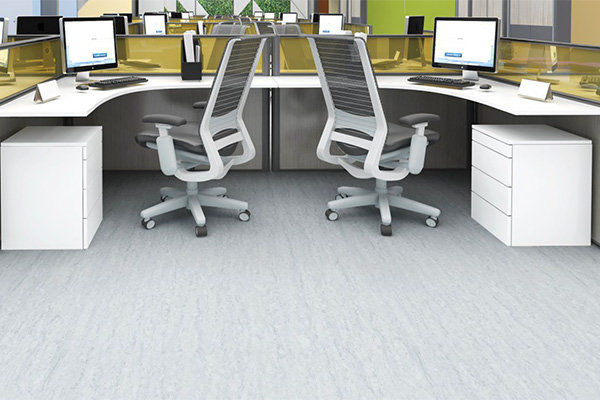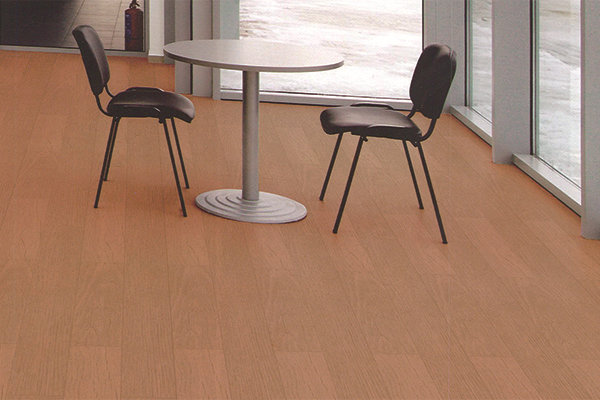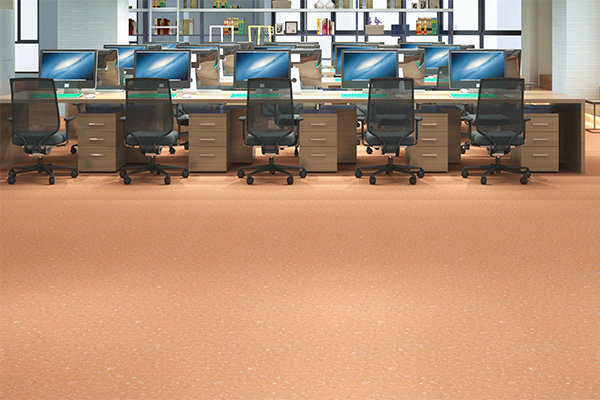What Is Industrial Flooring Roll? What Are The Differences And Advantages Between It And Epoxy Flooring?

Industrial flooring rolls are a type of flooring commonly used in industrial settings due to their durability, ease of installation, and resistance to heavy traffic and harsh chemicals. These rolls are typically made of materials such as rubber, PVC, or vinyl and come in large rolls that are rolled out and installed over the existing subfloor.
Here are some key characteristics and advantages of industrial flooring rolls:
Durability: Industrial flooring rolls are designed to withstand heavy loads, constant foot traffic, and other types of wear and tear commonly encountered in industrial environments. They are often resistant to abrasion, impact, and punctures, making them suitable for demanding applications.
Chemical Resistance: Many industrial flooring rolls are resistant to a wide range of chemicals, including oils, solvents, acids, and alkalis. This chemical resistance helps protect the flooring from damage and degradation caused by exposure to harsh substances.
Easy Installation: Industrial flooring rolls are relatively easy to install compared to other types of flooring, such as epoxy flooring. They can be rolled out and adhered to the subfloor using adhesive or double-sided tape, reducing installation time and labor costs.
Customization: Industrial flooring rolls are available in a variety of colors, patterns, and thicknesses, allowing for customization to meet specific aesthetic and functional requirements. Some rolls may also feature surface textures or patterns for enhanced slip resistance.
Sound and Thermal Insulation: Certain types of industrial flooring rolls provide sound and thermal insulation properties, helping to create a more comfortable and quieter working environment.
On the other hand, epoxy flooring is a type of resinous flooring system that is applied as a liquid coating to the concrete substrate. It cures to form a hard, seamless surface that is highly durable, chemical-resistant, and easy to clean. Here are some differences and advantages of epoxy flooring compared to industrial flooring rolls:
Seamlessness: Epoxy flooring creates a seamless surface, which eliminates joints or seams where dirt, moisture, or bacteria can accumulate. This seamless design enhances cleanliness and hygiene in industrial environments.
Chemical Resistance: Like industrial flooring rolls, epoxy flooring offers excellent resistance to a wide range of chemicals. However, epoxy flooring may provide superior chemical resistance in some cases, depending on the specific formulation used.
Customization: While industrial flooring rolls offer some degree of customization in terms of color and pattern, epoxy flooring offers greater flexibility for customization. Epoxy coatings can be customized with decorative flakes, metallic pigments, or quartz aggregates to create unique aesthetic effects.
Installation Complexity: Epoxy flooring typically requires professional installation due to its more complex application process. The substrate must be properly prepared, and the epoxy coating must be applied evenly to achieve optimal performance and durability.




